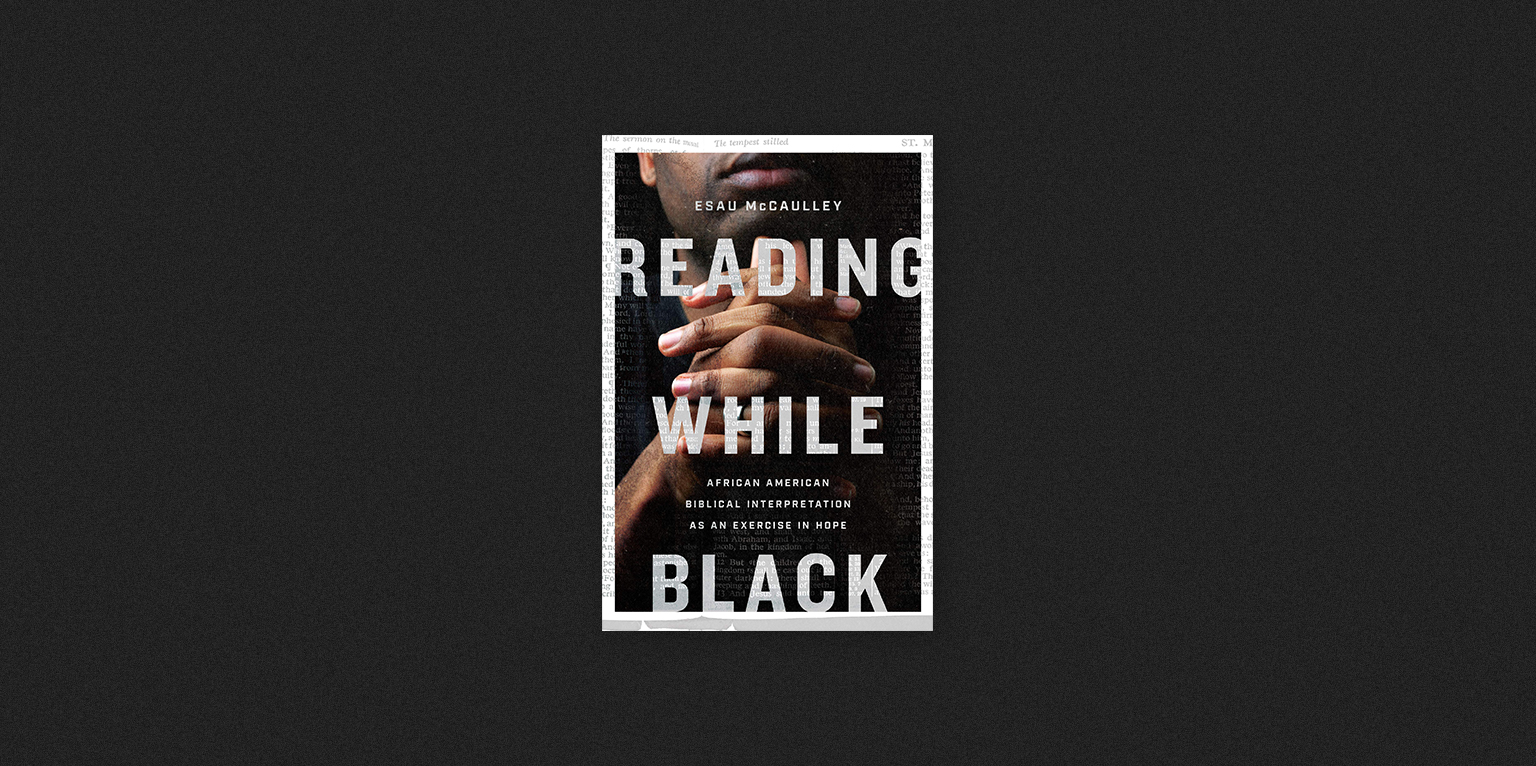
The unrest in Ferguson Missouri during 2014 served as a catalyst for needed conversations on the subject of race in the United States. The difficulty of the issues have only multiplied in the past few months with further cultural flashpoints in various cities and political parties entrenching on either side. Further complicating the situation are the ongoing internecine battles within Evangelicalism as the SBC passed a resolution supporting aspects of Critical Race Theory and other groups moved quickly to produce position papers or statements to define their own positions on a broad array of issues relating to race and racial reconciliation. Evangelicalism seemed determined to rend itself asunder as parties talked past one another in an attempt to make sense of our cultural moment.
Into the depth of this morass, Esau McCaulley, Assistant Professor of New Testament at Wheaton College, launched his timely volume, Reading While Black: African American Biblical Interpretation as an Exercise in Hope. McCaulley positions his volume as helping readers navigate a different way between white progressives, black progressives, and white evangelicals. Along this journey, McCaulley stipulates that there is a fourth way that is “unapologetically Black and orthodox.” This Black ecclesial tradition speaks a “relevant word to Black Christians today.” (6) For readers, McCaulley seeks to build an understanding of “Black biblical interpretation” that shows how scripture, “can function as an exercise in hope and connect us to the faith of our ancestors.” (23) It is this perspective of hope that McCaulley uses to frame the conversations started in each of the chapters.
McCaulley addresses challenging subjects that are frequently engaged in the broader conversations about race in America. Topics range from the political witness of the church, the pursuit of social justice, and Black anger, to policing, slavery, and Black identity. Each of the chapters connects readers to the text of Scripture and shows how the Black community has or can address twenty-first century issues with the hope of the Gospel. For example, one of the earlier chapters builds a Biblical theology of policing that grows out of a robust understanding of the image of God in all of humanity and provides a positive way forward for communities living with tension surrounding police brutality or withdrawal.
McCaulley recognizes that each of his chapters in this volume could easily be expanded to a full work on its own. This should give current students hope for places they could contribute their own voice and many readers will find the bibliography and brief discussion guide a helpful tool for further exploration. Yet this is one of the key frustrations of the volume itself – it feels as if we are simply skipping stones across the surface. The chapters on policing, rage, and interpretation of slavery in the text are all places McCaulley should continue to develop more fully into the future.
In his final chapter, “Bonus Track,” McCaulley helpfully demonstrates the tensions within the Black ecclesial tradition found in three main streams: a revolutionary/nationalistic stream, a reformist/transformist stream, and the conformist stream. While McCaulley locates himself in the latter, his engagement with the other streams of thought enables readers to understand the complexity within Black churches. Additionally, McCaulley helps readers understand how the white church’s involvement in slavery and Jim Crow harmed the clear teaching of the Gospel and lead to a growing body of Black secular voices. Thus, for Black, orthodox believers, they must develop a “double apologetic” to “answer questions posed by Black secularists and white progressives. (184) Despite these difficulties, McCaulley believes that an orthodox Black ecclesial tradition using the appropriate tools of Biblical interpretation will allow another generation to stand clearly for the sake of the Gospel.
Though this work is designed as a “love letter” (24) to the Black church, the value for all readers despite their tradition are clearly articulated arguments in each chapter that enables everyone to see the valuable and Biblical contributions of the Black church to our current moment. In many respects, if they are willing to listen, McCaulley’s volume provides for all evangelicals a way forward – a manner of understanding the heart of a community seeking to remain faithful to the text while dealing with continued external pressures they did not choose on their own. A community that has long expressed that the only true hope for humanity is Jesus Christ.
Editor’s Note: You can purchase Reading While Black here.

